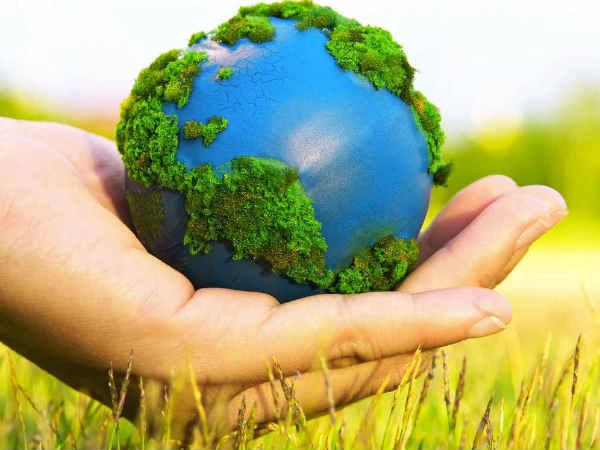
India wanted fair deal in Kigali - and got it: UN environment chief
Kigali, Oct 16 India knows the subcontinent is vulnerable to climate change but it also wanted a fair deal to phase out gases that are making global warming worse, a deal which also serves Indian development, UN Environment Chief Erik Solheim has said in an interview to IANS in the Rwandan capital.

He believes that US President Barak Obama reaching out to Indian Prime Minister Narendra Modi and other world leaders has been critical to achieving a landmark deal on Saturday to phase out the heat-trapping organic compounds -- hydrofluorocarbons (HFCs) -- and replacing them with climate-friendly alternatives.
"I am so glad! This is such a victory for Mother Earth. Up to half a degree of global warming is avoided and thus less droughts, cyclones and destruction of our beautiful planet," was the first reaction of Solheim after the amendment to the Montreal Protocol on Substances that Deplete the Ozone Layer was endorsed in this Rwandan capital.
The amendment is the single largest contribution the world has made towards keeping the rise of global temperature to "well below" two degrees Celsius, a target agreed upon at the Paris climate conference in 2015.
Hydroflurocarbons (HFCs) are widely used in refrigerators, air-conditioners and aerosol sprays.
Following seven years of negotiations, the 197 Montreal Protocol parties reached a compromise, under which developed countries will start phasing down HFCs by 2019, while the developing countries, including India, Pakistan, Iran and Iraq, will phase them out at a baseline of 2024-2026 and a freeze date of 2028.
The baseline year determines the level at which the HFC consumption in countries are capped.
Solheim said that the UN Environment has worked extremely hard over a number of years for this to happen. "In the beginning it was slow. But this year we all speeded up with the aim of concluding the deal in Kigali. So many people are to be thanked for this great victory."
About India's role in the amendment reached to cut out use of HFCs, he said: "India knows that the subcontinent is more vulnerable to climate change than many other parts of the world. So India has desired to phase out the dangerous climate gases. Understandably, India as a main player in international affairs has also wanted a fair deal, a deal which also serves Indian development. That is exactly what we have got," Solheim told this IANS correspondent.
Solheim -- who said he was inspired by the life and thoughts of Mahatma Gandhi, the apostle of peace and non-violence, in the global fight against climate change -- said the US played an important role in convincing India to go for a freeze date of 2028 -- instead of 2030.
"I want to pay tribute to the leadership provided by President Obama and Foreign Secretary Kerry. The fact that Obama has reached out to Prime Minister Modi and other world leaders has been critical. Negotiators are good and important people, but for deals to happen, the top level of states must be involved."
Regarding the role of China -- the world's largest HFC producer -- during negotiations for an amendment to the Montreal Protocol, he said: "China has been a most constructive player in this process, pushing for urgent and decisive action."
"China is so big both in terms of emissions and in terms of business solutions and technological change, that it is fair to say that without China we could not have reached any agreement in Kigali. China deserves the warmest of thanks."
He candidly admitted that there were differences of opinion among the signatories to the Montreal Protocol over the amendment.
"Indeed. If you read media summaries from 1987, when the Montreal Protocol was agreed, many said it was too weak and full of loopholes. The world has proved otherwise. I am confident that we will achieve the Kigali ambitions well ahead of time."
"When governments send strong signals to the private sector, business will step up and develop new refrigerators and new air-condition systems much faster than we believe. And those who are slow in turning around will lose markets."
Regarding allocation of the Multilateral Fund to the developing countries to help industry successfully phase down HFCs, Solheim said: "One beauty of the Montreal Protocol is that donors have been very responsible and delivered the promised money on time. I am confident that will continue when we are now also stepping up on climate."
At the four-day-long 28th meeting of the Parties to the 1989 Montreal Protocol that ended on Saturday, more than 150 countries also agreed to provide adequate financing for reduction of HFCs, the cost of which is estimated at billions of dollars globally.
The exact amount of additional funding will be agreed at the next Meeting of the Parties in Montreal in 2017, said the UNEP.
Grants for research and development of affordable alternatives to hydrofluorocarbons will be the immediate priority.
The new agreement will see three pathways for different countries.
The A2 (developed) countries have agreed to a baseline of 2011-2013 with cuts in HFCs beginning in 2019. In fact, the US, the European Union and other countries have already started this process.
A5 (developing) countries have agreed to two sub-groups with two different baselines.
A5 Group 2 includes India, Pakistan, Iran and Iraq -- with a baseline of 2024-2026 and a freeze date of 2028 (two years earlier than India had originally proposed).
China, Brazil, South Africa, Argentina and more than 100 other developing countries committed to freeze their HFC production and use by 2024.
IANS


 Click it and Unblock the Notifications
Click it and Unblock the Notifications


































